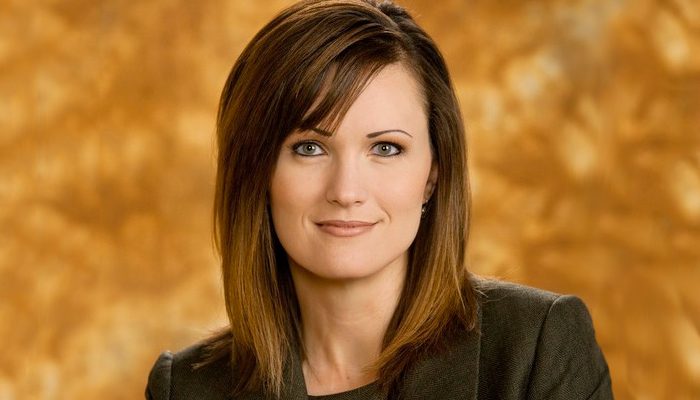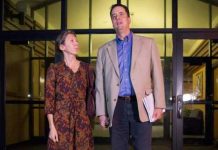
Yesterday (June 17), Doug Fabrizio, Radio West host, interviewed Ally Isom, Senior Manager of Public Affairs with The Church of Jesus Christ of Latter-day Saints, in which he discussed with her the details behind the Church disciplinary process.
Recently, Kate Kelly and John Dehlin, have been popping up all over the media ever since they each received a letter inviting them to attend a Church disciplinary council. Kelly is the founder and leader of Ordain Women, a group that seeks to allow women in the Church to be ordained to the priesthood. Dehlin is an avid Mormon blogger who has advocated for LGBT rights in the past. The letters these two individuals received has sparked many conversations on media outlets and inspired Fabrizio to discuss the Church’s disciplinary actions with Isom. However, when Fabrizio brought up Kelly and Dehlin’s possible excommunication, Isom declined any comment to respect the confidentiality of specific individuals.
Small aberrations in doctrinal teaching can lead to large and evil falsehoods.
—Gordon B. Hinckley
During the interview, Isom states that the church defines apostasy as when “members turn away from the principles of the gospel, or corrupt principles of the gospel, or make unauthorized changes in Church organizations or priesthood ordinances.” She continues to say that expressing personal views is one thing, but it’s a completely different situation when an individual begins to actively draw others away from clear gospel doctrine. She explains the dangers of this by quoting President Gordon B. Hinckley: “Small aberrations in doctrinal teaching can lead to large and evil falsehoods.”
In response to Fabrizio’s questions as to how Church change is brought about, Isom explained that although The Church of Jesus Christ of Latter-day Saints is a church of change, change only occurs through a specific process. Change does not necessarily come due to members’ petitions or lobbying, rather, change occurs under God’s direction. Isom tells Fabrizio:
One cannot use a mortal lense to assess how the processes play out in the Church. Only God understands this, they are His designs. The bottom line is we trust Him. We know that it is His church and He is in charge and in His due time He will determine the timing and the content of any revelatory change.
Fabrizio tried to understand if Kelly and Dehlin were being called to disciplinary action because they opposed Church views publicly and conversed with members about their opinions. Isom explained that the conversation is not the problem, but that “the conversation is always welcome.” She emphasized that when a member has doubts or seeks further understanding, they are more than welcome to express their feelings—it is not what is being said, it is how it is being said. She said that when someone’s actions shifts from a sincere desire to follow the Lord’s will to following one’s own will, one needs to reassess his or her own actions.The conversation is always welcome. – Ally Isom
Fabrizio suggested that many people who question Church doctrine often refer back to a General Conference talk given by President Dieter F. Uchtdorf, a member of the First Presidency of the Church. In his October 2013 address, Uchtdorf says (emphasis added):
It’s natural to have questions…One of the purposes of the Church is to nurture and cultivate the seed of faith—even in the sometimes sandy soil of doubt and uncertainty…please, first doubt your doubts before you doubt your faith. We must never allow doubt to hold us prisoner and keep us from the divine love, peace, and gifts that come through faith in the Lord Jesus Christ.
The day before interviewing Isom, Fabrizio discussed with Kelly the situation she and Dehlin are currently facing. Kelly explains her intent, saying:
It’s just a fundamental disagreement for how revelation occurs…I see this as part of the pattern of revelation that has been revealed in the scriptures and as we saw in the early days of the Church.
Find more resources on how The Church of Jesus Christ of Latter-day Saints approaches disciplinary councils at LDS.org.





